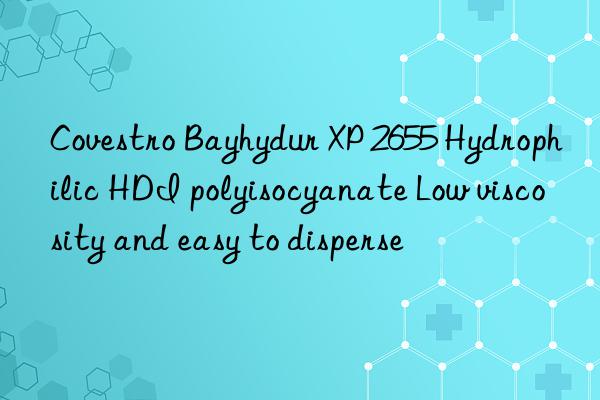
Type Hydrophilic aliphatic polyisocyanate based on hexamethylene diisocyanate (HDI), used as curing agent component of waterborne two-component polyurethane systems
Supply Form 100 %
Specifications
| Features | Value | unit | Test method |
| NCO content | 20.3 – 21.3 | % | M105 -ISO 11909 |
| Viscosity,23°C | 3,500 ± 1,000 | mPa ·s | M014 -ISO 3219/A.3 |
| Hazencolor value | < 60 | <span style=”font-famiary Water-based systems need to have the characteristics of good combination stability and chemical resistance. Although relatively weakly hydrophilic, this curing agent emulsifies easily in aqueous phases, even under the low shear forces common in commercial applications. Coatings prepared using this product form high gloss, low haze films. Generally, when mixing with a hydrophilic curing agent, especially an ionic hydrophilic polyol dispersion, it can be diluted with water in advance or a small amount of organic co-solvent can be added to control the increase in viscosity. Due to the balance between moderate hydrophilicity and high functionality, waterborne two-component polyurethane coatings prepared with Bayhydur XP 2655 are characterized by fast drying and rapid hardening, forming films with high final hardness and excellent chemical resistance characteristics. Bayhydur XP 2655 can also be used as a crosslinking aid for waterborne polyols (Bayhydrol®) and for most neutral waterborne polymer dispersions such as polyurethane, polyvinyl acetate, polyacrylate and synthetic rubber dispersions. joint agent. After adding Bayhydur XP 2655, the ready-to-use two-component coating must be used within the pot life. Pot life is influenced by polymer content and other components such as resins, thickeners, plasticizers, etc. In many dispersions, the end of the pot life (often a few hours) does not show signs of gelation. Save General Information :Hydrophilic isocyanates are very sensitive to moisture and react with water to form carbon dioxide and water-insoluble urea. It must therefore be stored in airtight containers. Water in all forms (humid air, solvents, wet containers) must be prevented because of the dangerous build-up of pressure caused by the production of carbon dioxide. High temperature storage will cause a slight increase in viscosity and color. Storage Time |

 微信扫一扫打赏
微信扫一扫打赏

